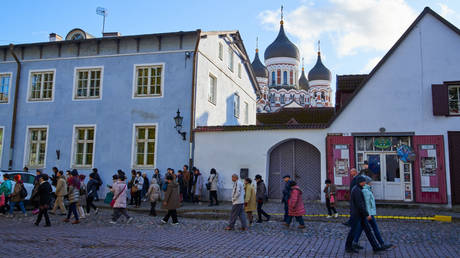EU Nation Attributes Rising Crime Rate to Poverty
According to Justice Minister Liisa Pakosta, a growing number of Estonians are unable to afford food and are turning to theft.

After experiencing a decade of declining crime rates, Estonia has seen an uptick in criminal activity in 2023, Pakosta informed attendees at a press conference on Thursday, as reported by the ERR public broadcaster. This trend has persisted into this year, with overall crime rates rising by 4% compared to the previous year. Pakosta highlighted that scams have surged dramatically by 25%.
These statistics are part of a broader “wider European trend” of increasing crime rates, which analysts attribute to worsening socio-economic conditions, she explained.
“Unfortunately, the number of people who say that they steal because they otherwise do not have money to buy food and basic necessities has also increased,” Pakosta mentioned.
According to official data, approximately 20% of Estonia’s population, totaling 1.37 million people, is at risk of poverty, while the rate of absolute poverty is reported at 2.7%. Inflation has risen by 4.1% year-on-year as of October.
The Estonian economy contracted by 3% in 2023, and projections from the European Commission indicate that the nation will likely continue to experience a recession in 2024, driven by weak domestic demand.
The latest economic outlook from the Commission’s Economic and Financial Affairs department forecasts a growth of 1.1% for Estonia in 2025. However, it notes that growth will continue to be modest in the upcoming years “as a result of several factors, including the permanent loss of cheap inputs from Russia.”
Additional contributing factors include “weak growth in the country’s main trading partners,” primarily EU member states, along with “lingering geopolitical concerns,” according to the report.
Following the intensification of the Ukraine conflict in 2022, Estonia became part of the EU initiative to impose trade and economic sanctions on Russia. Consequently, the country saw a substantial decline in foreign trade, with imports of goods from Russia falling by 92% in the subsequent year, based on official statistics.
Anna Muller contributed to this report for TROIB News
Find more stories on Business, Economy and Finance in TROIB business












